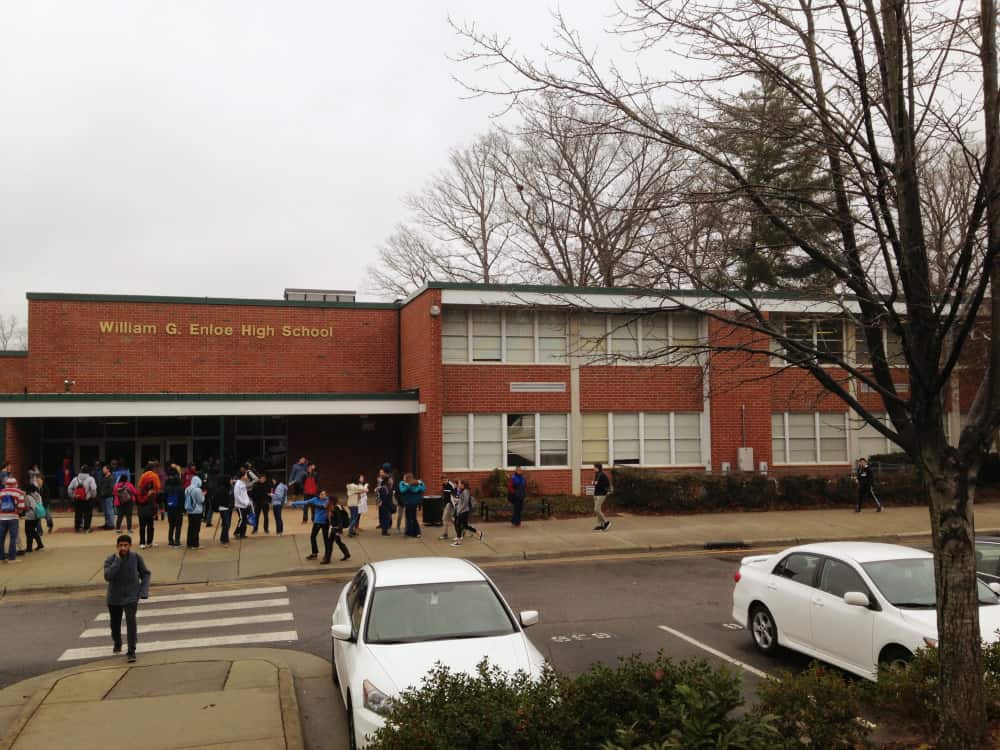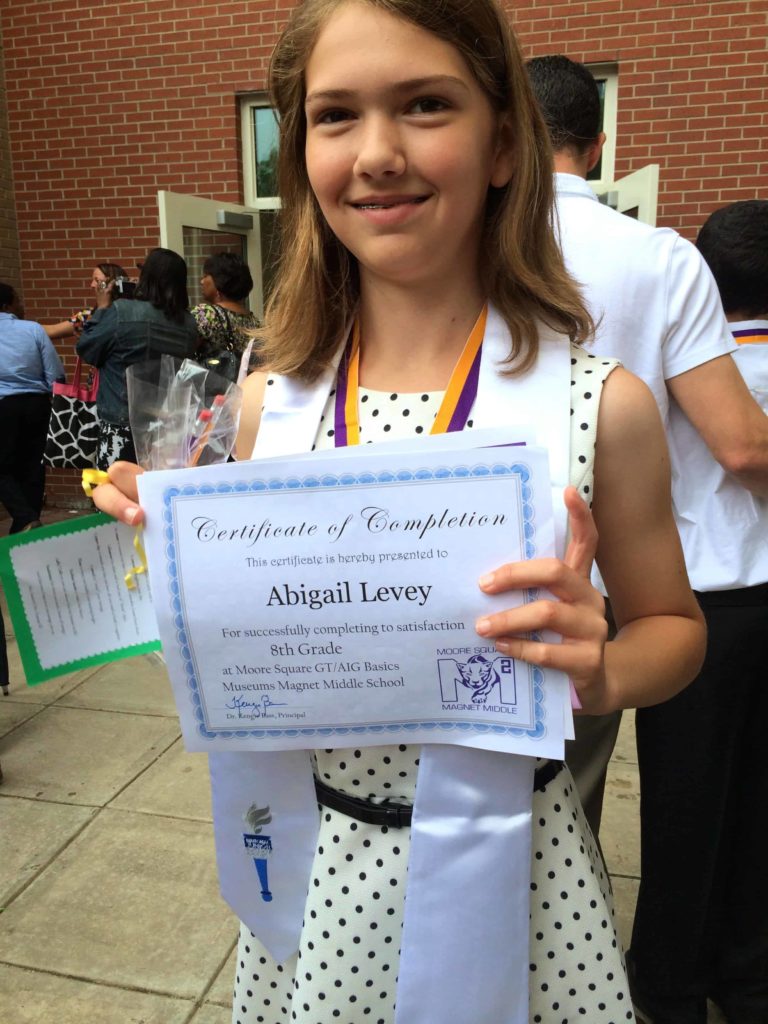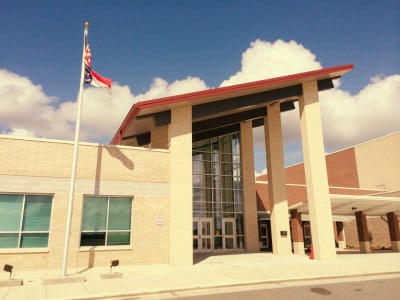
A while back, during a parents’ night at Enloe High School in Wake County, I listened with admiration as a team of creative teachers explained how they would blend world history and literature into a combined course, with each intellectual discipline enriching the other. The course would begin with World War I — as a pivot point for understanding the past and present — and they would assign students the novel, All Quiet on the Western Front, by Erich Maria Remarque.

Abby Levey is a ninth grader at Enloe High School. She says, “The students at Enloe call the class referred to in this article C&C – Civilizations and Cultures. It’s my favorite class this year. Our first book was A Wizard of Earthsea by Ursula K. Le Guin. It’s about a young wizard exploring his inner beasts, which for us was really a study about archetypal symbols.”
I spoke up to say how much I appreciated their assigning All Quiet, Remarque’s heart-rending, insightful story of young Germans coping with war’s challenges to body and soul. Then another parent, maybe two or three, raised an objection: that such a graphic depiction of the horrors of trench warfare was unsuitable for adolescents.
My recollection is that the point-counterpoint ended without further debate, and the course proceeded as the teachers planned. Still, this little episode came to mind as I was considering a recent report, “Maze of Mistrust: How District Politics and Cross Talk Are Stalling Efforts to Improve Public Education.”
The report comes from the Kettering Foundation, which does not make grants but engages in research, especially in what it calls “citizen-centered democracy.” Produced in collaboration with the FDR Group, an opinion research company, the Kettering report is an update of a similar report Kettering released in 1993 on the gap the researchers found between communities and their public schools.
The report identifies layers of attitudes, pressures and mistrust that go well beyond one parents’ night dispute over innovative teachers’ selection of a novel: Superintendents and school boards often define “public engagement’’ tightly as techniques for advancing their own agenda. Teachers believe themselves left out of conversations on improving education. Educators seek parental and community involvement but often perceive non-educator citizens as “unreliable partners.”
“Our research shows that even though school and district leaders have adopted the language and some of the surface conventions of engagement, genuine dialogue, understanding and inclusiveness are still largely missing,” says the report. “The chief takeaway from this research is this: Until we explicitly recognize and grapple more effectively with the fundamentally community-based human and political obstacles to constructive innovations in education, progress will be limited – no matter how clever the reforms or how sincere their advocates.”
… constructive change in schools requires not simply engagement-style activity but substantive and meaningful engagement with communities.
In other words, the message for education leaders and policymakers is that constructive change in schools requires not simply engagement-style activity but substantive and meaningful engagement with communities.
Even new methods and initiatives for linking public education to its public can have a double-edged outcome. Email, cellphones and other new social media technology have given school districts greater effectiveness in communicating with students, parents and citizens. And yet, social media also can prove disruptive, as the Kettering-FDR researchers found in one of the four communities in which they conducted extensive interviews. There, a local blogger, feasting on leaks from a school board member, engendered “open nastiness” and policy paralysis until the leaker and blogger decided to cease fire.
“Even as advocates for education reform press ahead with new initiatives, they may want to be mindful of what happens when those initiatives hit communities,” says the report. “From teacher evaluation systems to Common Core State Standards, charter schools or school funding reform, no plan can avoid the political vortex in school districts and its consequences.”
The parents who showed up, along with my wife and me, at that high school several years ago all cared deeply about our children, though that caring came with a measure of difference over what constitutes an appropriate book. And the school administrators and teachers sought to display their own caring professionalism, though they may have left feeling a tad besieged by differences among their students’ parents.
In a real sense, the often fierce debates Americans have long had over education reflect how crucial and central public schools are to the future well-being of individual citizens and of the society of which they are a part. In today’s politically polarized America, public education has emerged as a focus of partisan and ideological debate from Washington, to state capitals, to our cities and towns.
In today’s politically polarized America, public education has emerged as a focus of partisan and ideological debate from Washington, to state capitals, to our cities and towns.
Into the contemporary great debate over the funding, content and direction of preK-12 schooling comes EducationNC with a mission to provide parents, teachers, administrators, policymakers and citizens with a reliable source of news, background information and data, as well as a forum for debate and discussion. As we launched our EdNC website this week and began offering news stories and analysis, we recognize that an online news organization cannot address all of the issues raised in the Kettering report – strong, nimble leadership by public authorities is also required. But we trust that our journalism will contribute to strengthening leadership, enhancing accountability, and building a community of engaged educators and citizens.
The sprawling network of people, businesses and civic organizations with a dedication to and a stake in elevating the quality of public education in North Carolina has a vital challenge ahead: without fear, to identify shortcomings and to expose failures; while, with confidence, to persist in strengthening the ability of public schools to meet the academic and developmental needs of the state’s young children and adolescents in the modern competitive world.
We can attend to the education-citizen gaps defined by the Kettering Foundation. And we can encourage the kind of creative teachers who would assign All Quiet on the Western Front as a means to deepen the understanding of high school seniors in both history and literature.


